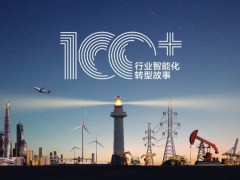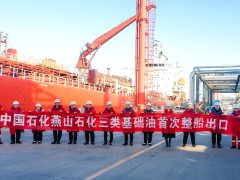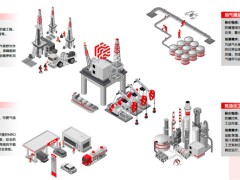据钻机地带7月27日专栏消息,达拉斯一家私营油气运营商的负责人上周告知我们,世界两大主要油价基准忽略了一些重要因素。
King Operation Corp 创始人兼首席执行官 Jay Young 表示:“最近沙特阿拉伯和阿联酋的协议使欧佩克和欧佩克+组织将供应列为讨论的重心,每天 40万桶恢复供应的短期影响并不大,不会在短期内影响定价的因素。市场正在听取不同专家的意见,他们使用不同的指标得出不同的结果。”
Young表示,即使新冠Delta变体出现,石油需求仍将继续上升。然而,他认为,在其他大宗商品定价方法中经常被忽视的两个关键问题需要计算到布伦特和西德克萨斯中质原油基准中:
随着能源市场变得“更环保”,化石燃料使用量增加
美国页岩油公司缺乏资金。
对于绿色能源市场导致化石燃料消耗增加的问题,Young断言,石油和天然气需求既没有见顶,也不会很快见顶。
Young表示:“主要石油公司逃离市场只会推高价格,而不会减少需求。”
他以煤炭市场的动态为例。
Young表示:“印度和其他国家的煤炭使用量大幅上升,并有望保持这一趋势。另一方面,加州的煤炭使用量并没有减少,需求持平。这怎么可能?水泥和沥青只是继续使用化石燃料的两个罪魁祸首。没有化石燃料,就不可能有新的建筑。还有许多其他因素,我们很快就会公布这些数据。加州也是全美最高的千瓦时(计费单位消费者),但没有减少消费。”
他指出,公司的研究团队也在研究电动汽车(EV)的数量,他认为,考虑到电动汽车的总成本,削弱了其对内燃机汽车的吸引力。
Young表示:“我们看到数据显示,没有足够的稀土矿物来生产汽车所需的电池。世界人口已经习惯了‘随心所欲的交通工具’。“如果电动汽车的价格包括充电和更换电池的成本,这将不会改变他们目前的行为模式。”
在谈到美国页岩油公司资本不足的问题时,Young提到了近年来石油和天然气市场出现的“几个关键因素”。
他表示:“首先,投资者要求他们获得投资回报,而不是更换储备替代品。在过去十年里,石油和天然气公司只能替代部分已探明储量。因此,投资者对长期投资失去了兴趣。然后出现了“更环保”的投资者。有一种趋势是,上市石油公司会受到反石油和天然气投资者的攻击,导致董事会成员被那些可能不符合利益相关者最佳利益的人取代。在当前的世界心态下,投资者不想挑起争端;他们只想要轻松的回报。”
裘寅 编译自 Rigzone
原文如下:
What's Missing from Oil Prices?
The world’s two leading oil price benchmarks are omitting some important considerations, the head of a privately held Dallas-based oil and gas operator told Rigzone last week.
“The recent Saudi Arabia and UAE deal kept the OPEC and OPEC+ organizations at the forefront of supply discussions,” remarked Jay Young, founder and CEO of King Operation Corp. “The shorter impact of having the 400,000 barrels per day coming back online is not a significant amount and will not impact the pricing factor in the short run. The market is listening to multiple experts using different metrics with different outcomes.”
According to Young, oil demand will continue to go up even with the new COVID-19 Delta variant. However, he contends that two key issues – often ignored in other commodity pricing methodologies – need to be calculated into the Brent and West Texas Intermediate oil benchmarks:
increased fossil fuel usage as the energy market becomes “greener”
U.S. shale oil firms’ lack of capital.
Regarding the issue of greater fossil fuel consumption from a greener energy market, Young asserts that oil and gas demand has neither peaked nor will do so anytime soon.
“The major oil companies fleeing the market will only drive the price up, not reduce the demand,” Young said.
He cited dynamics in the coal market as a case in point.
“Coal usage in India, and other countries is way up and looks to keep that trend going,” said Young. “On the other hand, coal usage in California has not decreased, and demand is flat. How is that possible? Cement and asphalt are only two of the culprits for the continued use of fossil fuels. You can’t have new construction without fossil fuels. There are many other factors, and we will be publishing the numbers soon. California is also the highest kilowatt-hour (billing unit consumer) in the country while not decreasing consumption.”
Noting that his company’s research team is also examining electric vehicle (EV) numbers, Young argues that considering the total cost of EV ownership weakens its appeal over vehicles powered by internal combustion engines.
“We see data that shows there are not enough rare earth minerals to produce the batteries for the number of cars required,” Young said. “The world’s population has gotten used to ‘transportation at will.’ It will not change their current behavior patterns when the price for EVs is calculated with charging and battery replacement costs.”
On the issue of insufficient capital among U.S. shale oil firms, Young referenced what he calls “several key factors” that have occurred in recent years in the oil and gas market.
“First, investors demanded that they get returns on their investments rather than replace their reserve replacements,” Young said. “Over the past ten years, oil and gas companies could replace only a portion of their proved reserves. As a result, investors lost their appetite for long-term investments. Then along came the ‘greener’ investors. There is a trend for public oil companies to be attacked by anti-oil and gas investors, resulting in replacing board members with those that may not have the stakeholder’s best interest. Investors don’t want to pick a fight in the current world mindset; they just want no-hassle returns.”
免责声明:本网转载自其它媒体的文章,目的在于弘扬石化精神,传递更多石化信息,并不代表本网赞同其观点和对其真实性负责,在此我们谨向原作者和原媒体致以敬意。如果您认为本站文章侵犯了您的版权,请与我们联系,我们将第一时间删除。







